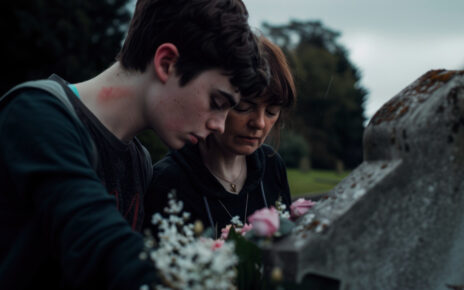INTRODUCTION
Death is an unavoidable part of the human experience, although it is frequently one of the most feared and least spoken topics in society. Death anxiety, also known as thanatophobia, can afflict people of all ages and backgrounds, causing severe discomfort and reducing quality of life. Understanding the psychology of death anxiety, as well as developing appropriate coping and healing skills, can help people navigate this difficult feeling. In this post, we look at the causes and symptoms of death anxiety, as well as practical ways to manage and overcome it.

Understanding Death Anxiety
Death anxiety refers to the fear and apprehension surrounding one’s own death or the death of loved ones. This anxiety can stem from various sources, including fear of the unknown, fear of non-existence, or fear of loss and separation. It may also be triggered by existential concerns, such as the meaning of life and the inevitability of mortality.
Manifestations of Death Anxiety
Death anxiety can manifest in various ways, including:
- Physical Symptoms: Elevated heart rate, sweating, and shortness of breath.
- Emotional Symptoms: Intense fear, panic, and feelings of helplessness.
- Cognitive Symptoms: Intrusive thoughts about death, avoidance of situations that remind one of death, and difficulty concentrating.
- Behavioral Symptoms: Avoidance of discussions about death, reluctance to attend funerals, and excessive health monitoring.
Strategies for Coping with Death Anxiety
Although thanatophobia can be a distressing experience, there are strategies individuals can use to manage and overcome it. Here are some practical approaches to consider:
1. Confront the Fear
Avoiding discussions or thoughts about death can intensify anxiety over time. Facing the fear and openly discussing it with trusted individuals can help normalize the experience and reduce its power. Journaling about thanatophobia can also provide clarity and perspective.
2. Practice Mindfulness
Mindfulness practices, such as meditation and deep breathing exercises, can help individuals stay present and manage anxiety. Focusing on the present moment and accepting thoughts and feelings without judgment can create a sense of calm and ease.
3. Seek Professional Support
Therapy can be an invaluable resource for managingthis anxiety. Cognitive-behavioral therapy (CBT), exposure therapy, and existential therapy are all effective approaches that can help individuals reframe their thoughts and develop coping skills.
4. Educate Yourself
Learning about the natural process of death and dying can demystify the experience and alleviate fear. Reading books or watching documentaries on the subject can provide insights and promote a greater acceptance of mortality.
5. Connect with Others
Sharing experiences and concerns with others who understand this anxiety can provide emotional support and a sense of community. Support groups or online forums can be safe spaces for discussing fears and gaining different perspectives.
6. Focus on Meaning and Purpose
Engaging in meaningful activities and reflecting on one’s values and goals can help shift focus away from fear. Embracing a purpose-driven life can foster a sense of fulfillment and diminish anxiety about death.
7. Consider Spiritual or Religious Beliefs
For many individuals, spiritual or religious beliefs offer comfort and reassurance regarding death. Exploring one’s faith or spiritual practices can provide a sense of peace and acceptance.
Healing from Death Anxiety: A Journey
Healing from this is a personal journey that may take time and effort. It’s important to be patient with oneself and acknowledge progress along the way. While fear of death may never fully disappear, learning to cope with it can lead to a more balanced and fulfilling life.
By implementing the strategies outlined in this article and seeking support when needed, individuals can take proactive steps toward managing death anxiety and embracing life more fully.
CONCLUSION
Death anxiety is a normal aspect of the human experience. Individuals can navigate and heal from this complex emotion by knowing its psychology and using good coping mechanisms. Individuals who address death anxiety can improve their mental and emotional well-being and develop a greater respect for life.





2 Replies to “The Psychology of Death Anxiety:”
Comments are closed.